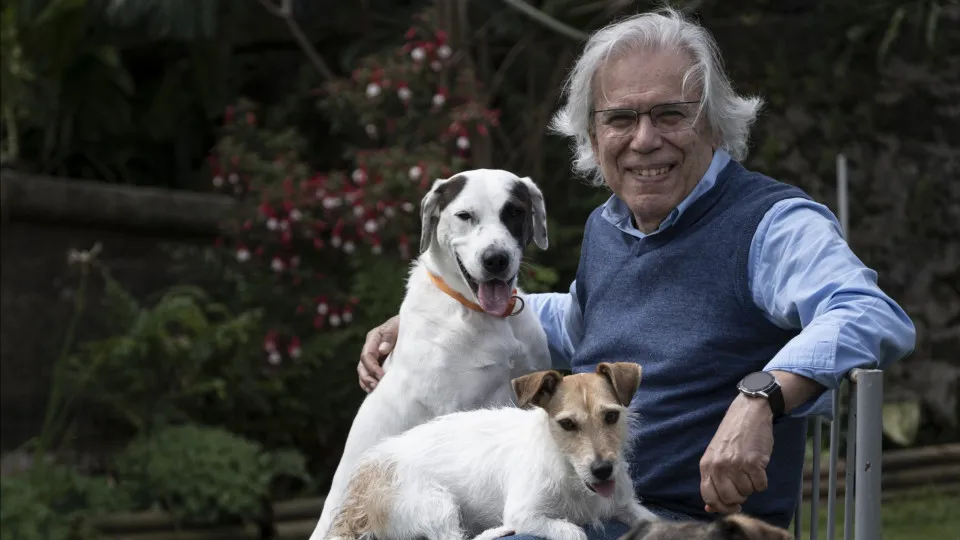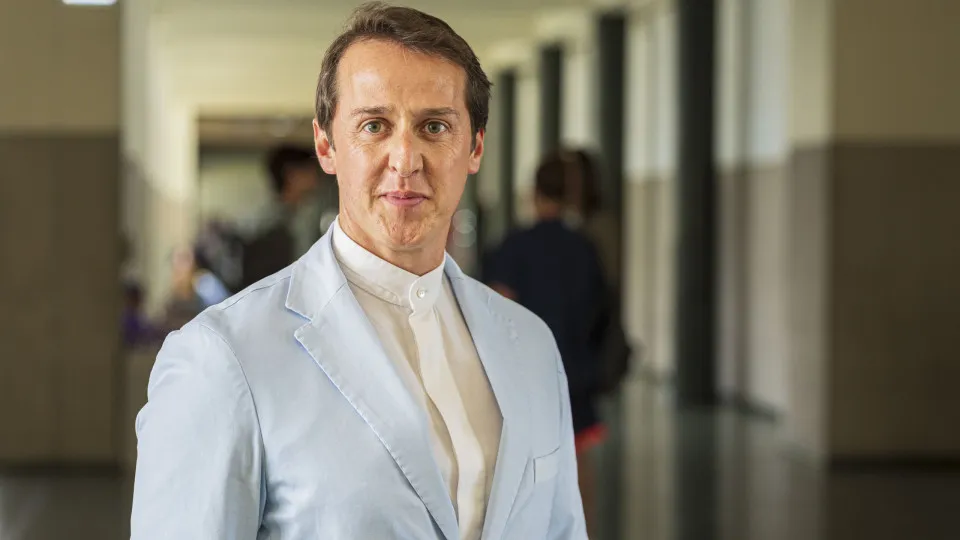
The psychiatrist Júlio Machado Vaz has launched ‘Outonecer,’ a book inviting readers to reflect on aging and introspection while addressing his own fears associated with this process.
In a confessional tone, without losing his characteristic humor, the sexologist explores various aspects of aging in ‘Outonecer.’
From love to sex, loss to achievements, travel to music, political issues to artificial intelligence, children and grandchildren to friends, and even his pets, which he considers family, Júlio Machado Vaz crafts this book as an authentic “hymn to all seasons,” a journey through his past, present, and future.
The Notícias ao Minuto conducted an email interview with the expert, where he not only discussed ‘Outonecer’ but also the power of love (and humor), sexuality, the impact of social media, the rise of hate and populism, and even the “shipwreck” of dementia.
It’s natural for “the urgency to live” to become more pronounced with age
You recently released ‘Outonecer,’ where you offer reflections on aging and invite those experiencing this phase to act instead of reacting, as “it’s urgent to live.” Have you always had this ‘urgency,’ or did you become aware of it over time? Why?
It’s natural for “the urgency to live” to become more pronounced with age. After all, we realize that death is not an abstract concept but something that awaits us shortly. This realization generally prompts us to rethink priorities and try to strip our journey of concerns and goals we consider non-essential.
Is this book a form of catharsis? Self-help?
In books like ‘Muros,’ the ‘Tempo dos Espelhos,’ and ‘Outonecer,’ I have tried to know myself better through the written word. In this sense, we might literally talk about self-help. As for others, I never had the presumption to teach them how to live; I wasn’t born to be an influencer.
Are you afraid of the “return without return”?
I’m not afraid of death; it’s merely a return to non-existence. However, I am concerned about the quality of the journey leading to it, which is why I would like to maintain the necessary autonomy to make decisions I deem appropriate.
Love is a powerful tool to help us live a life, not just survive
How can love help overcome the fear of aging?
Love is a powerful tool to help us live a life, not just survive. At any age!
Does love change throughout life? Is the way love is experienced in adulthood different from in the ‘autumn?’ In what aspects?
‘Autumnal’ love is often more mature, less subject to the ‘imperialistic’ shadow of passion. Possible pacification is not felt as a second-rate affection but as a deepening of intimacy that goes far beyond physical nudity.
Among reflections on the past, present, and future, you recall various memories. Which are the happiest and most significant memories you mention in this book?
I cherish fond memories of trips to Languedoc, Provence, and my beloved Barcelona, but perhaps the most significant reside in Cantelães, where I gather the tribe around the kitchen table whenever I can. These ‘feasts,’ if I may use the term, have always been wrapped in unmatched tenderness and joy.
At one point, you mention that your parents suffered from dementia, leading you to fear developing this disease yourself. How can such ‘traumas’ affect how one experiences aging?
Like many others, I harbor a deep fear of losing lucidity. My parents’ sad life endings did not birth this concern but accentuated it in bold strokes. For what it would mean to me and those around me, witnessing the shipwreck of loved ones is profoundly distressing.
Older people’s sexuality is still subject to discrimination
In the book, you discuss a topic still often seen as taboo among the elderly: sexuality. How can demystifying this help live this phase in the best possible way?
Older people’s sexuality is still subject to discrimination. Despite cultural advancements, it is not uncommon for older people to be seen as asexual or reduced to mere tenderness. It’s false. A potential quantitative decrease is often accompanied by a description of qualitative improvements due to fewer taboos and fantasies of competition and deeper communication.
In ‘Outonecer,’ you also discuss social media and artificial intelligence. As a psychiatrist, what is the main impact these technologies have on aging? And on life in general? What are the pros and cons, in your opinion?
New technologies can and should be invaluable in combating the loneliness epidemic affecting society as a whole, but especially the elderly. In general life, the benefits are evident, from science to everyday life, as seen during pandemic confinement periods. As a psychiatrist, I am particularly concerned about the increasing cases of dependency, which are far from being a monopoly of the young. This substitution of reality with the virtual world brings worrying difficulties in psychological development and tools for empathy and social cohesion.
Do you think these also help spread hate speech and populism?
Without a doubt, they amplify our meanest tendencies, whether anonymously or not. Adding this to the algorithm’s passion for increasing views without any ethical concern creates an ideal culture medium for hate and populism due to the certainties they convey.
Despite touching on several serious topics – such as the loss of loved ones – in a moving way, you never lose your humor. Is humor also a form of therapy?
Yes, when I’ve lost the ability to laugh at myself, not only will I not have the right to smile amusingly at life in general, but I will fear for my mental health. Laughter is a privileged form of self-criticism, essential for lucidity.




